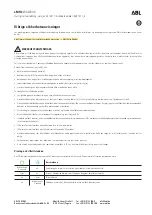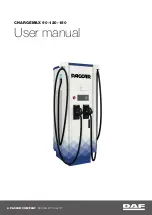
Cadillac XT4 Owner Manual (GMNA-Localizing-Europe-15440913) - 2022 -
CRC - 5/13/21
DRIVING AND OPERATING
265
Severe winter grade diesel fuel, such
as 1-D diesel fuel or Arctic grade
diesel fuel, can be used in extreme
cold temperatures (below
−
18 °C or
0 °F); however, doing so will reduce
power and fuel economy. Avoid using
severe winter grade fuel in warm or
hot climates. It may result in stalling,
poor starting, and damage to the fuel
injection system.
Fuels improperly blended for cold
temperature operation may result in
restricted fuel filters. The vehicle is
equipped with a fuel heating system
to prevent gelling or waxing of
conventional diesel fuel and biodiesel
blends, but may not prevent all cases.
In the event of severe winter
conditions, the fuel filter may become
clogged by wax naturally present in
the fuel. To unclog it, move the
vehicle to a warm garage area and
allow the filter to warm up. The fuel
filter may need to be replaced. See
Fuel Filter Replacement (Diesel)
Biodiesel
Biodiesel is a renewable fuel produced
from vegetable oils or animal fats that
have been chemically modified to
make it compatible with diesel fuel.
Caution
Do not use homemade biodiesel or
home test kits because the quality
cannot be verified by approved
scientific methods. Do not use raw
vegetable oil or other unmodified
bio-oils, fats, or blends of vegetable
oil with diesel. They could damage
the fuel system and engine, and
damage would not be covered by
the vehicle warranty.
Biodiesel Blends
Fuels with a biodiesel content up to
7% by volume may be used (e.g.,
named B7). Only use biodiesel blends
up to 7% by volume that comply with
your country's or region's fuel
standards.
Caution
Do not use blends containing more
than 7% by volume biodiesel. Any
engine, fuel system, or exhaust
after-treatment system damage
would not be covered by the vehicle
warranty.
As a renewable fuel, biodiesel provides
some environmental benefits.
However, biodiesel has unique
properties and needs to be handled
differently than diesel fuel. Its use
presents additional risks and may not
be appropriate in all situations.
Certain vehicle operating modes
increase these risks and should be
avoided.
Biodiesel fuel quality degrades with
time and exposure to high
temperature more quickly than Ultra
Low Sulphur Diesel fuel. More
frequent refuelling provides the best
opportunity to have a supply of fresh
fuel. Storage at hot ambient
temperatures will accelerate biodiesel
degradation.















































